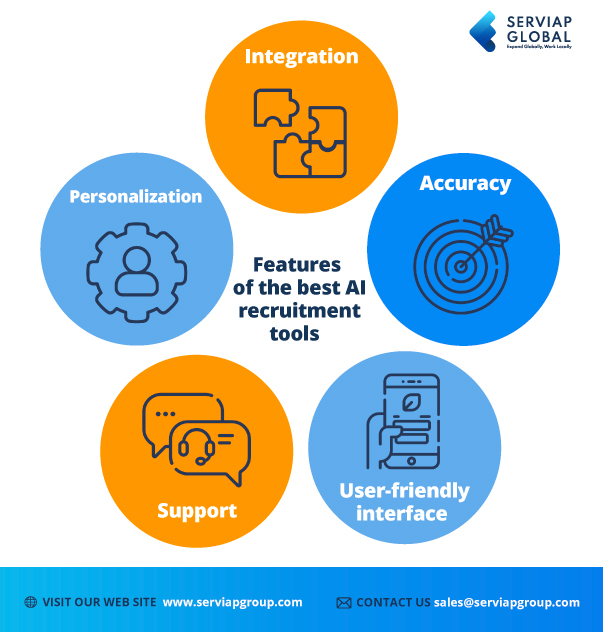The increased adoption of remote work seen over recent years has led many companies to think about recruiting internationally. After all, if there’s no need to have workers in a particular place, why not cast your net wider? If you are thinking about expanding overseas, it’s important to know the different options you have available.
You can set up a legal entity in a different country when hiring international employees. However, there are other options, whether you are looking for full-time employers, or short-term collaborators with independent agreements.
The one that will best suit your needs depends on a range of factors, including speed and cost as well as the nature of the job, legal commitments and long-term strategy. There is no one-size-fits-all answer to the question of how to start recruiting internationally.
SEE ALSO: Call center outsourcing: 5 great destinations to consider
Expanding a business into new territories requires careful strategizing, transforming key processes such as communication, hiring, and reviewing. It is imperative to comprehend the options, challenges and benefits associated with recruiting internationally to create a plan that facilitates a seamless transition to the global market.
Serviap Global assists companies with global hiring solutions in over 100 countries worldwide. Contact us if you are interested in recruiting internationally.
Recruiting internationally: three great options
1) Hire via EOR
When it comes to recruiting internationally, working with an Employer of Record (EOR) can be a practical solution. An EOR is a third-party provider that specializes in hiring professionals through its own international entities or partner organizations. With a deep understanding of local job markets, an EOR can assist in talent sourcing, recruitment, and even managing payroll for the hired personnel.


Collaborating with an EOR ensures compliance with local regulations, diminishing the risk for the hiring company. The EOR assumes full legal responsibility, eliminating unexpected legal issues or financial fines for the client. Also, an EOR can take care of payroll, general administration, and regular reporting obligations related to the hired professionals, including tax payments, benefits, and paid time off.
The EOR sets a monthly fee per employee, which can be either a flat payment or a percentage of their salary. Assessing the company’s needs and considering the EOR’s capabilities and coverage will help determine the most suitable arrangement for successfully recruiting internationally. While some EORs focus on specific countries or regions, others have a broader reach, so the options are varied.
2) Work with international independent contractors
International independent contractors are individuals or groups who collaborate independently. While they may work full-time, they do so under their own company, providing freelance services to an employer. They can be a great option for engaging workers on specific projects or durations.
Contractors do not receive the same legal benefits as employees, as they are not on the company’s payroll. Yet, they have distinct legal protections and may receive slightly higher wages compared to full-time workers performing similar tasks. Some Employer of Record (EOR) providers also offer support for contractor recruitment and hiring, making them a viable option for assistance in this regard.
These professionals bring useful experience to project execution, often retain specialized knowledge, and uphold flexible schedules. However, the risk of misclassifying them can result in legal complications and potential fines. Additionally, monitoring and ensuring the quality of their work can be more demanding for employees.
3) Employ directly
Recruiting internationally unassisted can be a complex process. The first thing to consider is that you will need to set up a legal entity in your country of choice. You must ensure compliance with all legal obligations, including registration with local authorities and obtaining necessary permits or licenses.
Once you have a clear knowlegde of the legal landscape, you can move with the recruitment process. Advertise your job openings through various media, locally and internationally, to draw a diverse pool of candidates. It is essential to consider language barriers and provide the required support. You’ll also have to directly negotiate, finalize employment contracts, and administer them.
Hiring directly can be more time-consuming than working with an EOR, especially for companies that are just starting in a foreign countries, and don’t have many connections and resources. Either way, an Employer of Record can assist you in the whole process of establishing an entity in another country.
Benefits and considerations of recruiting internationally
Recruiting internationally comes with plenty of benefits. One of them is being able to reduce costs with office space. Now that a part of your workforce will be working remotely, you can downsize or even eliminate physical places for your company. If you ever need face-to-face meetings, you can still rent temporary collaborative hub places.


You can also seize new opportunities in foreign territories by discovering great talent in countries that you may not have considered before. Often, you will also enjoy competitive rates, increased chances of global networking, and reaching untapped potential.
The best approach to recruiting internationally is to follow a strategy aimed at success from the start to the long term. So the first thing is to plan your goals and define the type of skills and expertise you need the most. Then, choose your hiring arrangement according to your objectives.
Selecting your target market is crucial before initiating a candidate search. It helps you with accessing the right workforce. While you can conduct the market analysis on your own, an EOR can provide valuable extra assistance, as they possess in-depth knowledge of local markets, labor and tax laws, educational backgrounds, and specialized skills of the population.
Latest trends for recruiting internationally
Embarking on the lastest trends in recruiting internationally is a possible solution to overcome the global talent shortage, as employers worldwide are becoming more open to hiring remotely. So, doing an accurate search and offering exciting work opportunities can get your company ahead of the curve.
Diverse and distributed workforce
Adopt strategies to create a diverse workforce, which is an increasingly important topic for innovative businesses. The benefits of remote working appeal to employees of multiple races, ethnic backgrounds, and gender, meaning that recruiting internationally is a good way to boost your diversity.
International job platforms
Nowadays, there are a handful of international job sites to help you in finding the best professionals online. Some of the most popular ones are LinkedIn, Indeed, and Monster. They work in many countries, and creating a presence on these platforms can help you in recruiting internationally with success.
AI technology
AI recruiting tools are revolutionizing HR departments and optimizing complex processes. Use them wisely for quicker recruitment operations, enhanced data analysis, diminished bias, and better candidate experience. Some popular tools for HR include Skillate, Manatal, Arya, and X0PA AI.
Serviap Global provides EOR services for international expansion
At Serviap Global, we help companies to expand their businesses in over 100 countries worldwide through our international PEO / EOR services. We also assist companies with independent contractor hiring and offer global talent acquisition if your company is looking to hire directly.
Contact us today to find out more about how we can assist you with recruiting internationally.
Use our risk calculation tool and avoid contractor misclassification. And if you want to get an idea of total payroll costs in Vietnam and other territories, check out our salary paycheck calculator.























